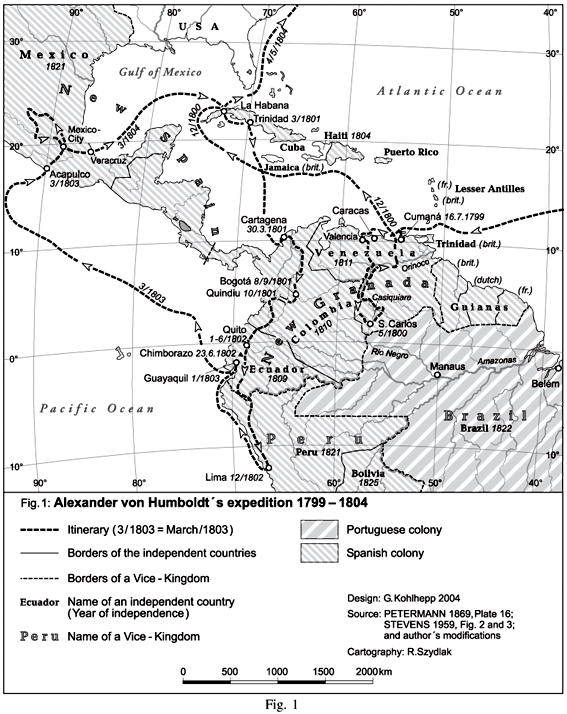Alexander von Humboldt's expedition from 1799 till 1804 to the "equinoctial regions of the new world" led through Venezuela, Cuba, Colombia, Ecuador, Peru, and Mexico. In Europe an increased knowledge of the "New World" was connected with the privately funded journey, which served purely scientific purposes and had nothing to do with the exploration and exploitation of natural resources. Besides the research results, which were based on new measuring methods and the quantitative ascertainment of scientific basics, the journey also made possible detailed descriptions in matters of regional studies including social, socio-economic, political, and economic-geographic circumstances, which were based on empirical field studies. The expedition took place shortly before the political change in Latin America. Humboldt, who still experienced the feudal character of global economy based on slave labor in the colonies, vehemently criticized this economic structure - although he was a noble - and its unbearable social conditions. This is the reason why Humboldt is still admired in Latin America till this day. In Europe the scientific insights of his journey to the tropics and his innovative impulses in geog raphy as well as in many other disciplines brought him fame and lasting recognition as a universal scholar, who had crucial influence on the development of the sciences during the first half of the 19th century.
historical geography; regional studies; Latin America; Spanish colonies; Alexander von Humboldt


